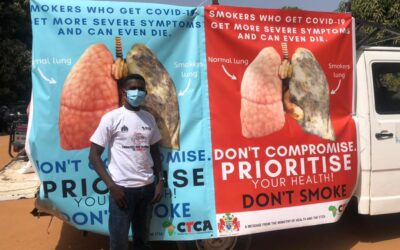Across the globe researchers have noted that in tobacco control studies young people must be prioritized to ensure that there is a productive young population.
The challenge is that in Uganda there are a limited number of studies that have looked into how teenagers engage with the tobacco control policy in Uganda, particularly in slum areas.
In her study, Jesca Nantume will attempt to establish how aware young people are of the existing control measures, what are their attitudes towards smoking and what are the underlying factors that lead them to start smoking.
Nantume is one of 12 researchers that were awarded grants in the first round of calls of the Centre for Tobacco Control in Africa’s Tobacco Control Research Agenda. The agenda has identified eight tobacco control areas where research has to be prioritised so that the existing research capacity can be strengthened and gaps filled.
It also aims to identify ways of that bringing policymakers and researchers together to share information and translate research findings into actions.
In Uganda more than 70% of the population is under the age of 24, with close to 8 million young people between the ages of 15 and 24.
According to the statistics, Uganda has a rising burden of tobacco smoking among young people. Just under 8% of the young people older than 15 use of tobacco products.
Additionally one in three young people who go to bars start smoking at a very young age and there is a alarmingly high increase in the number of young people who start using smokeless tobacco products like shisha which is banned in Uganda.
According to statistics from the Global Youth Tobacco Survey released in 2013, among young people aged 13 to 15, a staggering 17% use tobacco products. Uganda’s Tobacco Control Act, enacted in 2015, prohibits the supply of tobacco and sale of tobacco products to minors.
Two slums in Kampala: Kamwokya and Mbuya will form the basis of her study sites where she will survey teenagers between the ages of 13 and 19. In these two slums, there are high illiteracy levels. There is poor structural housing and it is highly crowded. And importantly, there is a growing young population that is being exposed to tobacco products.
Nantume will interview 100 teenagers at two study sites along with key informants who are experts in tobacco control and public health.
She will also arrange focus groups discussions. “It is very crucial to understand the young people in these areas to establish their knowledge and attitudes to the Tobacco Control Act,” said Nantume in her research proposal.



0 Comments